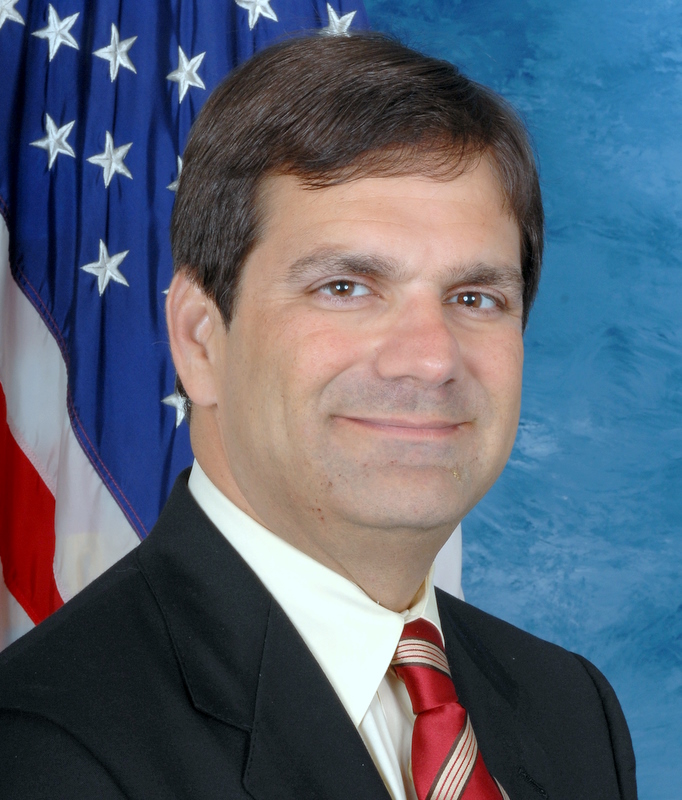Above photo: Rep. Gus Bilirakis, vice-chairman of the Veteran Affairs Committee, organized the task force responsible for reforming how active military make the transition to civilian life. Courtesy of U.S. Congress
By Luke Cross
Tucked away in the Military & Veterans Success Center in The Terrace, a year-long, nationwide program launched Thursday.
The program looks to gather feedback on the transition from military to civilian life on behalf of Rep. Gus Bilirakis, vice-chairman of the Veteran Affairs Committee.
“It comes from a personal place for me, wanting to solve this conundrum of how so many of us feel disconnected from civilian life and why that is,” said Benjamin Smet, co-chair of the Military Veterans Transition Task Force, which is spearheading the initiative.
Smet is a doctoral student, professor at the Bishop Center for Ethical Leadership and grant writer for USF St. Petersburg’s Military & Veterans Success Center.
During his doctoral research he recognized how little the psychosocial aspects of holistic military transition had been studied.
“Normally for academic work, you review the literature on the subject. I was shocked to find nothing, nothing on transition,” said Smet. “When you compare how many veterans feel disconnected from civilian life with the fact that only 14 percent see combat, the issue can’t just be PTSD (post-traumatic stress disorder),” said Smet.PTSD
The conflation of post-traumatic stress and transition difficulties is one of the primary problems the initiative is looking to solve.
“Adjustment and transition carry a lot of the same symptoms as post-traumatic stress,” said Brian Anderson, former Green Beret and co-chair of the task force.
Anderson is also the founder and director of Veterans Alternative, a nonprofit focused on post-traumatic growth for veterans, and has seen the failures of the Transition Assistance Program.
TAP was established in 1990 and consists of a 5-day crash course to equip prospective veterans with the tools needed to transition from military to civilian life.
“It’s the basically the same program they are using 30 years later,” said Anderson. “They’ve tried to make adaptations to the program, and they’re good adaptations, but it’s an antiquated framework,” said Anderson.
Witnessing the issues with TAP firsthand, the task force is looking to create and implement a more effective system to assist with transition.
“Every war in our nation’s history, we have evolved to a new paradigm on how we take care of veterans,” said Smet. “Our argument is that this is the first time in our nation’s history that we’re using an all volunteer force, the next logical step in our paradigm shifts has to be holistic transitions.”
The task force is looking to the community to best address the issues surrounding transition and TAP. The first means of gathering public input will be through Collaborative Labs, a meeting space oriented for problem solving hosted by St. Petersburg College.
They are looking to bring 100 “thought-leaders” from around the country Aug. 7 to Collaborative Labs to discuss their experiences with transition and brainstorm over problems they encountered.
“You don’t need to be a scientist to attend, it’s your experience that we crave,” said Anderson. “Your shared experience will go to a central, reactive hub to consolidate thoughts on transition across the nation, which Tallahassee and D.C. can use to make change.”
The task force will also be utilizing the Open Partnership Education Network, a public hub for sharing thoughts and suggestions on the upcoming transition program.
“Good ideas die in emails. By getting public thought in an open area, we can meet the needs of individuals,” said B. Taylor, Navy veteran and co-chair of the task force.
The three co-chairs are hoping that the variety of avenues for public input will better highlight the issues facing this generation of veterans.
“These aren’t baby boomers, this is a different generation coming back with different needs” said Taylor. “We’re going to kick down some walls, and get what we need to solve the problem.”
For input on the program or an invitation to the Collaborative Labs event Aug. 7, contact Benjamin Smet at bas1@mail.usf.edu



